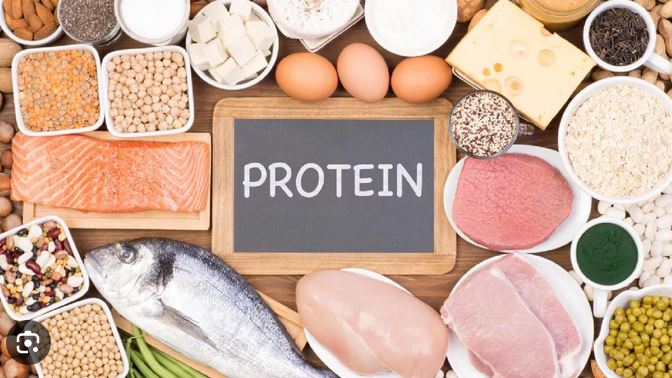10 Sneaky Signs You’re Low In Protein & How To Bump Up Your Intake
Protein has become a buzzword in the well-being space, and for good reason. This macronutrient is essential for supporting your muscles, fueling your brain, keeping your immune system strong, and leaving you satisfied between meals.
Many functional health experts would agree: Plenty of people could use more protein in their diet—but how do you know if you’re one of them? To come, 10 sneaky signs you could benefit from more protein and how to up your intake without driving yourself crazy.

10 signs you’re low in protein
- Low lean muscle mass: This one probably won’t come as a surprise, but it’s worth reiterating: Research has shown that low protein intake can reduce lean muscle mass, which also means reduced strength. Having strong muscles isn’t just an aesthetic thing: Lean mass helps support musculoskeletal health and combats other concerns that can impact longevity as we age. Low muscle mass has also been associated with other health implications such as cognitive function concerns, insulin sensitivity struggles, and sub optimal inflammatory balance in the body, so it’s worth paying attention to.
- Lacking exercise results & recovery: Protein is also essential for helping our muscles repair and rebuild after a workout. If you have hit an exercise plateau, research shows that protein can help improve muscle recovery. Hence, another reason experts recommend consuming protein before or after a workout.
- Feeling overly tired: Being low on protein can also lead to lower energy levels, which can negatively impact performance and day-to-day activities.
- Always feeling hungry: As mentioned earlier, not eating enough protein in a meal can leave you feeling hungry. Protein is the most satiating macronutrient, after all. If you’re constantly feeling hungry even right after you eat, low protein intake could be to blame.
- Brittle hair and nails: According to UCLA Health, brittle hair and nails are often the first signs of insufficient protein intake—hence why the beauty industry is actually very pro-protein.
- Crepey skin: Vitamin C isn’t the only important skin food. “Years of ingesting insufficient or poor-quality protein is also a major contributor,” board-certified dermatologist Carl Thornfeldt, M.D., previously told mindbodygreen about crepey skin.
- Suboptimal glucose & insulin balance: The data consistently show that having whey protein before a meal helps support blood sugar balance after you eat.* This is because the amino acid building blocks in protein, especially leucine, have a strong positive effect on insulin—the hormone responsible for lowering blood sugar when it’s elevated.
- Immune health struggles: A diet low in protein is well-known to contribute to suboptimal immune system function due to the relationship between protein and optimized T-cell function.
- Brain fog & mood: Amino acids serve as precursors to neurotransmitters, which are the backbone of cognitive health, focus, and mood. When compared to a diet high in carbohydrates, a protein-rich diet has been shown to lower the odds of cognitive decline later in life.
- Joint aches & weak bones: Protein has been shown to be protective against joint health concerns and discomfort. Additionally, plenty of research suggests that increased protein intake can support stronger bones (which are essential for healthy, comfortable aging).
View the article here.